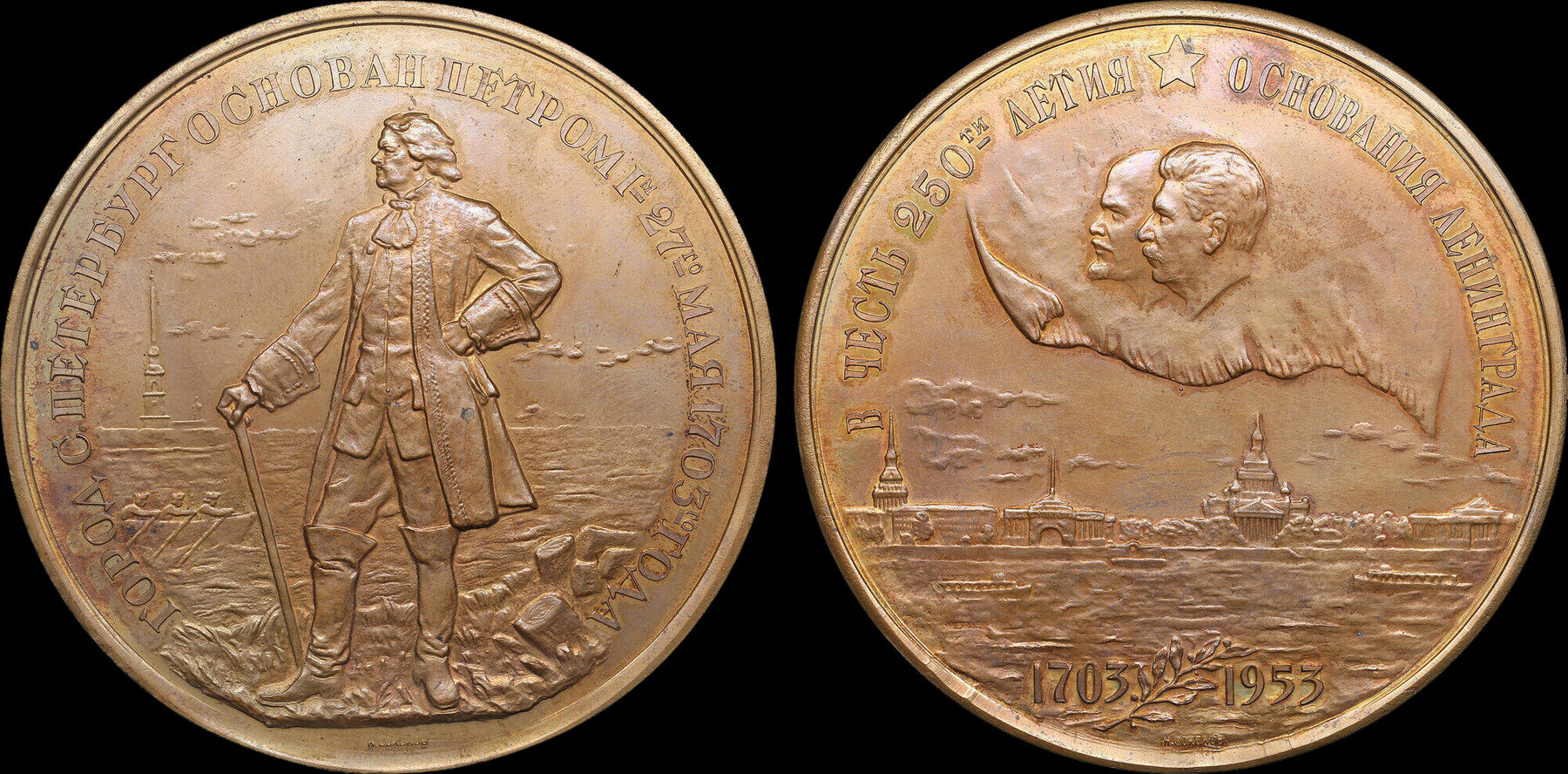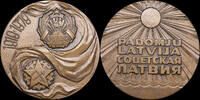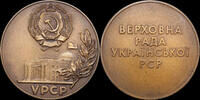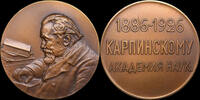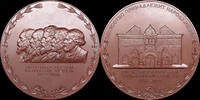MA-ID: 603802090
Customer feedback Numex OÜ
Excellent seller, highly recommended!
Thank You! Nice items for reasonable price, quick shipping! Excellent!!!
Ja, ich bin mit dem gekauften Geldschein vollig zufrieden. Danke.
M.Brindz...
Super Ware! Gerne wieder.
USSR / Russia medal - 250th Anniversary of Founding of Leningrad 1953 - TRIAL / PROBE UNC
Numex OÜ 

9
On MA-Shops since 9 years
1195 ratings,
100 % Positive (last 24 months)
Worldwide shipping
1,047.86 US$900,00 EUR
Import tax may be added
+ 46.57 US$ shipping ( to United States )
Delivery time: 10 - 14 days
+ 46.57 US$ shipping ( to United States )
| Customer Support 941.210.2677 |
| Payment methods |
| Wire Transfer |
Diameter 74 mm. LMD. Шкурко, Салыков# 98. TRIAL/PROBE!
The Founding of Leningrad: A Historical Overview
The city known today as St. Petersburg, but once Leningrad, was founded by Tsar Peter the Great on May 27, 1703, as a strategic move to secure a seaport and a "window to Europe" for Russia. Here's a concise look at its founding and the transformation into Leningrad:
Peter the Great's Vision: Peter I, inspired by European capitals, sought to modernize Russia. The founding of St. Petersburg was part of this ambition, aiming to shift Russia's orientation towards the West. The city was established on the Neva River delta, a marshy area, which was transformed into an architectural marvel over decades.
From St. Petersburg to Petrograd: Initially named after Saint Peter, the city was renamed Petrograd in 1914 due to anti-German sentiment during World War I, reflecting a move away from German influences in Russian culture and language.
The Birth of Leningrad: After the death of Vladimir Lenin in 1924, Petrograd was renamed Leningrad in his honor. This renaming symbolized the Soviet Union's commitment to its revolutionary leader and the ideological shift towards communism. Leningrad became a symbol of Soviet resilience, especially during World War II when it endured a brutal 872-day siege by German forces, which began in September 1941.
Cultural and Political Hub: Throughout its history, the city has been a center of culture, politics, and military strategy. It was the capital of Russia for over two centuries until 1918, when Moscow took over this role after the October Revolution. Despite the name changes, the city's significance in Russian history remained undiminished, hosting major cultural institutions like the Hermitage Museum.
Return to St. Petersburg: The name Leningrad persisted until 1991, when, following the dissolution of the Soviet Union, the city's original name, St. Petersburg, was restored by popular vote. This act was seen as a return to pre-Soviet heritage, reflecting a broader cultural and political shift in post-Soviet Russia.
Legacy: The name Leningrad, while no longer in official use for the city, remains in the Leningrad Region, indicating a lasting legacy of the Soviet era. The city's history, from its founding to its various name changes, encapsulates Russia's journey through imperial, revolutionary, and modern times, making St. Petersburg a living testament to Russian history.
This brief overview captures the essence of Leningrad's founding and its historical significance, reflecting the city's role as a bridge between Russia's past and its aspirations towards Europe, through both its original and Soviet-era names.
The Founding of Leningrad: A Historical Overview
The city known today as St. Petersburg, but once Leningrad, was founded by Tsar Peter the Great on May 27, 1703, as a strategic move to secure a seaport and a "window to Europe" for Russia. Here's a concise look at its founding and the transformation into Leningrad:
Peter the Great's Vision: Peter I, inspired by European capitals, sought to modernize Russia. The founding of St. Petersburg was part of this ambition, aiming to shift Russia's orientation towards the West. The city was established on the Neva River delta, a marshy area, which was transformed into an architectural marvel over decades.
From St. Petersburg to Petrograd: Initially named after Saint Peter, the city was renamed Petrograd in 1914 due to anti-German sentiment during World War I, reflecting a move away from German influences in Russian culture and language.
The Birth of Leningrad: After the death of Vladimir Lenin in 1924, Petrograd was renamed Leningrad in his honor. This renaming symbolized the Soviet Union's commitment to its revolutionary leader and the ideological shift towards communism. Leningrad became a symbol of Soviet resilience, especially during World War II when it endured a brutal 872-day siege by German forces, which began in September 1941.
Cultural and Political Hub: Throughout its history, the city has been a center of culture, politics, and military strategy. It was the capital of Russia for over two centuries until 1918, when Moscow took over this role after the October Revolution. Despite the name changes, the city's significance in Russian history remained undiminished, hosting major cultural institutions like the Hermitage Museum.
Return to St. Petersburg: The name Leningrad persisted until 1991, when, following the dissolution of the Soviet Union, the city's original name, St. Petersburg, was restored by popular vote. This act was seen as a return to pre-Soviet heritage, reflecting a broader cultural and political shift in post-Soviet Russia.
Legacy: The name Leningrad, while no longer in official use for the city, remains in the Leningrad Region, indicating a lasting legacy of the Soviet era. The city's history, from its founding to its various name changes, encapsulates Russia's journey through imperial, revolutionary, and modern times, making St. Petersburg a living testament to Russian history.
This brief overview captures the essence of Leningrad's founding and its historical significance, reflecting the city's role as a bridge between Russia's past and its aspirations towards Europe, through both its original and Soviet-era names.
Info / FAQ
| Shipping fees | ||||
|---|---|---|---|---|
| 1.16 US$ to 58.21 US$ | 58.21 US$ to 232.86 US$ | 232.86 US$ to 582.15 US$ | over 582.15 US$ | |
| China | 13.97 US$ | n/a | n/a | n/a |
| Germany | 5.82 US$ | 5.82 US$ | 5.82 US$ | 17.46 US$ |
| Estonia | 5.82 US$ | 5.82 US$ | 5.82 US$ | 13.97 US$ |
| United Kingdom | 5.82 US$ | 5.82 US$ | 5.82 US$ | 29.11 US$ |
| United States | 5.82 US$ | 5.82 US$ | 5.82 US$ | 46.57 US$ |
| European Union | 5.82 US$ | 5.82 US$ | 5.82 US$ | 29.11 US$ |
| World | 13.97 US$ | 17.46 US$ | 116.43 US$ | 116.43 US$ |
Information
Online orders are welcome as always and will be shipped directly.
|
Seller Home | 0Shopping cart | Terms of sale | Contact | MA Terms of sale | Privacy policy | Warranty | MA-Shops New Items Copyright ® 2001-2025, MA-SHOPS Coins All Rights Reserved. Designated trademarks and brands are the property of their respective owners. |
 Buy coins with warranty
Buy coins with warranty



